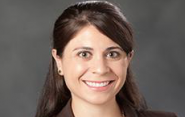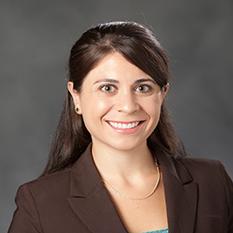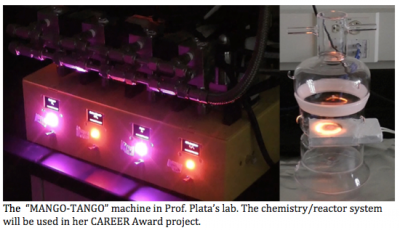Desiree Plata Wins CAREER Award; Aims For Next Generation Of Materials, and Engineers

For a project that seeks to develop a means of controllably synthesizing nanomaterials – and foster better communications among scientists - Desiree Plata has received a 2016 Faculty Early Career Development CAREER Award from the National Science Foundation (NSF).
 Plata, an assistant professor of chemical & environmental engineering, is using the $500,000 award to focus on carbon nanotubes. From water filtration applications to organic transistors, Plata says there's almost no field of technology that won't have a use for carbon nanotubes in the next 20 years. The problem is that, at this point, there's no good way to make them efficiently.
Plata, an assistant professor of chemical & environmental engineering, is using the $500,000 award to focus on carbon nanotubes. From water filtration applications to organic transistors, Plata says there's almost no field of technology that won't have a use for carbon nanotubes in the next 20 years. The problem is that, at this point, there's no good way to make them efficiently.
"For every one carbon atom that ends up in a product, you've probably emitted one hundred to one million other carbon atoms," Plata said. "That's not good for the Earth or the manufacturers' bottom line. We're trying to improve that."
The conventional means of making carbon nanotubes involves a process known as chemical vapor deposition, which requires heating carbon gas and a catalytic material at the same time at extremely high temperatures. The process leads to hundreds of simultaneous gas reactions and a lot of wasted product.
"The reason it's not well controlled is you're taking this one pot, and heating it all up at the same time," Plata said. Her team has devised a process in which gases are delivered at significantly reduced temperatures. "Then, we don't have a reaction cascade going on, but just a few gases reacting at a time."
That gives the researchers a better idea of what's going on in the reactor. "We want to leverage that understanding to make controlled nanomaterials that can then be used in all of these important applications."
Succeeding, though, requires the collaboration of researchers from disciplines that rarely work together. Getting them to do so productively is the other part of Plata's project. She said communication is particularly important to this project because the research merges traditional performance and cost metrics with environmental objectives. Rather than taking an engineer from one discipline and training them in all the areas necessary to the project, it's more effective to take engineers from different disciplines and teach them to talk and work with each other. This preserves each individual's depth of knowledge and allows them to work together on problems that exist at the interface of traditional disciplinary boundaries.
As part of that effort - fostering stronger communication skills - grad students will design their own outreach modules for grades K-12. These lessons will be both posted online to reach a wider audience and delivered live in workshops in New Haven schools.
"We're trying to recruit and retain women and underrepresented groups to the sciences and engineering," she said. "We have a great audience in New Haven to do that, with a very diverse population, so we want to engage the community with what we're doing in the labs here at Yale."

